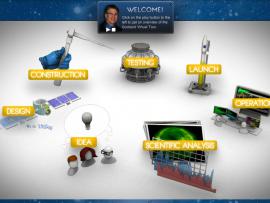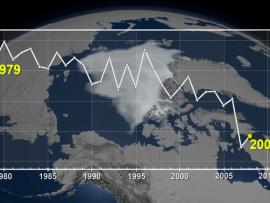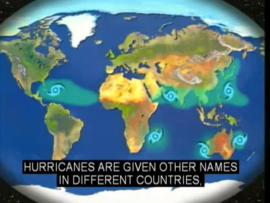Browse Informal Resources
Browse Informal Resources
Primary Topic:
Subtopics:
Type:
Keywords:
Summary:
Learn about the life cycle of a satellite at Goddard Space Flight Center. This interactive 'tour' starts with the Idea phase and goes through the whole process ofa NASA satellite mission. This tour is an interesting introduction to the engineering process
Primary Topic:
Subtopics:
Type:
Keywords:
Summary:
View recent data for air temperature, carbon dioxide, carbon monoxide, sea level, ozone, ice and water using an interactive viewer. You can also follow NASA's satellites and learn how they collect critical data about Earth's atmosphere, land, and oceans.
Primary Topic:
Subtopics:
Type:
Keywords:
Summary:
View the latest data on the vital signs of the planet, including arctic sea ice levels, carbon dioxide, sea levels, global temperature and land ice.
Primary Topic:
Subtopics:
Type:
Keywords:
Summary:
The cryosphere consists of those parts of the Earth's surface where water is found in solid form, including areas of snow, sea ice, glaciers, permafrost, ice sheets, and icebergs. This animation shows fluctuations in the cryosphere.
Primary Topic:
Subtopics:
Type:
Keywords:
Summary:
Find out how scientists use the distinct sounds made underwater by different size raindrops to measure rainfall.
Primary Topic:
Subtopics:
Type:
Keywords:
Summary:
The S'COOL Project involves students (ages 5 - 20+) in real science, making and reporting ground truth observations of clouds to assist in the validation of NASA's CERES satellite instruments. Includes lesson plans and other related materials.
Primary Topic:
Subtopics:
Type:
Keywords:
Summary:
Learn about precipitation and how clouds are formed. Find out why scientists study clouds and how you can help NASA collect cloud observation data as part of the Students' Cloud Observation OnLine, or S'COOL, Project.
Primary Topic:
Subtopics:
Type:
Standards:
Keywords:
Summary:
Whether referred to as "global warming" or "climate change," the consequences of the widescale changes currently being observed in Earth's climate system could be considerable.
Primary Topic:
Subtopics:
Type:
Keywords:
Summary:
This video covers the impact that climate change is having on Earth's oceans, and shows how technology is being used by NASA to help us learn how oceans are responding to climate change.
Primary Topic:
Subtopics:
Type:
Keywords:
Summary:
This NASA video segment explains the formation of hurricanes. Go behind the scenes with a meteorologist at the Weather Channel in Atlanta, Georgia to learn how scientists predict hurricanes and hurricane formation.










